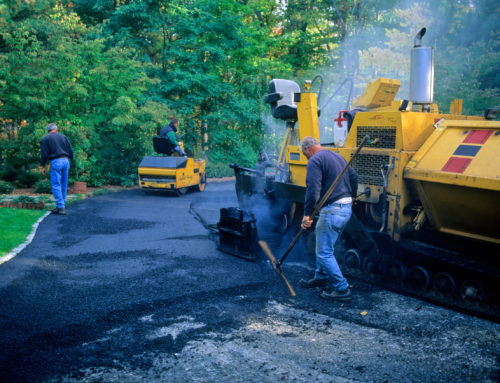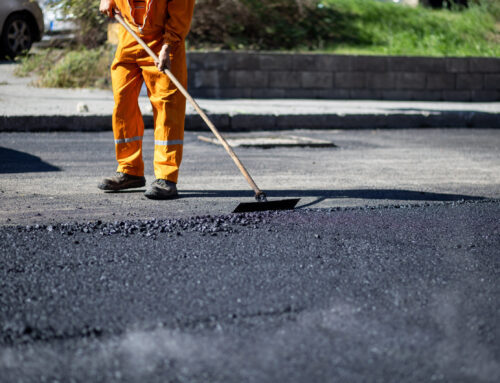Welcome back to the Sunrise Asphalt blog, where we discuss all the topics that are asphalt and asphalt adjacent! Sometimes that means telling you about us and our business specifically, sometimes that means going a bit wider scope. This time we are tackling questions we see come up a lot including: is asphalt toxic? Is sealcoating asphalt necessary? What is bitumen? To find out these answers and more, read on!
You may have heard of bitumen when people discuss asphalt. That’s because they are one and the same! The two words are used interchangeably, with the US using asphalt and the UK preferring bitumen. Naturally occurring asphalt is also occasionally referred to as ‘crude bitumen.’ But again, they largely mean the same thing.
Is Asphalt Toxic? No and Yes
Asphalt itself is just made up of many, mostly naturally occurring components. Bitumen is harvested from naturally occurring deposits. The rock aggregate is, once again, natural. But, there is a component of it that can be risky, and that’s the fumes.
Just like many of the processes and materials involved in constructing our cities, there are certain stages where otherwise innocuous materials become a bit more hazardous. Think of a piece of metal. Completely safe to pick up and move around, unless it is in contact with even a small current of electricity! Now that piece needs to be handled cautiously to be safe. The same can be said for asphalt and their fumes.
Asphalt, when heated and prepared for laying can produce fumes that when inhaled can cause headaches, skin rashes, fatigue, and other possible results. This can happen with any sort of fume of course, and while OSHA doesn’t have standards on how to handle asphalt fumes, the standard best practices for fumes work plenty. Work and lay asphalt in well-ventilated areas and wear the proper equipment and clothing and you should be fine.
Is Sealcoating Asphalt Necessary?
We talk about sealcoating plenty here as it is one of our services. It’s an incredibly useful process of applying that protective coating to prevent damage from gas/oil spills, wear and tear, or just oxidation. So is it necessary? No, but it lays such a layer of protection to prolong the life of your asphalt surfaces its less a necessity and more a no-brainer! It will help your driveway survive car fluids, snow, ice, and all sorts more.
How Thick Should Asphalt Driveway Be?
An interesting question! The thickness of an asphalt driveway is determined by a range of factors and while you may see some businesses or home improvement blogs give a ‘standard’ thickness, we will go ahead and pass on that. What might be a perfectly fine thickness for certain conditions may find the road crumbling in parts elsewhere. Always go with a professional, experienced asphalt company to install your driveway or patch jobs.
We hope this brief Q & A has answered the questions you may have had about asphalt thickness, toxicity, or the necessity of sealcoating! Here at Sunrise Asphalt, we are striving to deliver the best quality product, the most up to date knowledge and information for our clients and the asphalt industry as a whole. If you are looking to get some paving done, reach out and we can get to work. We’ll see you back here next time on the Sunrise Asphalt blog!





